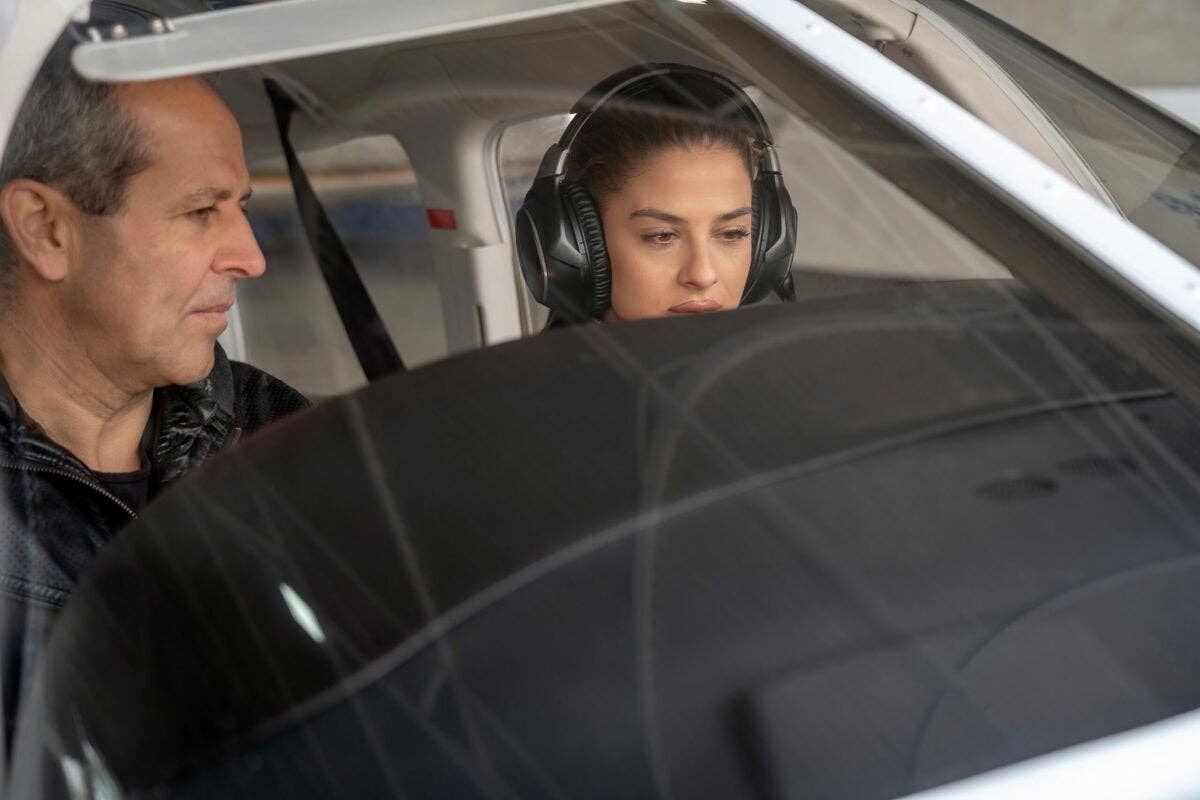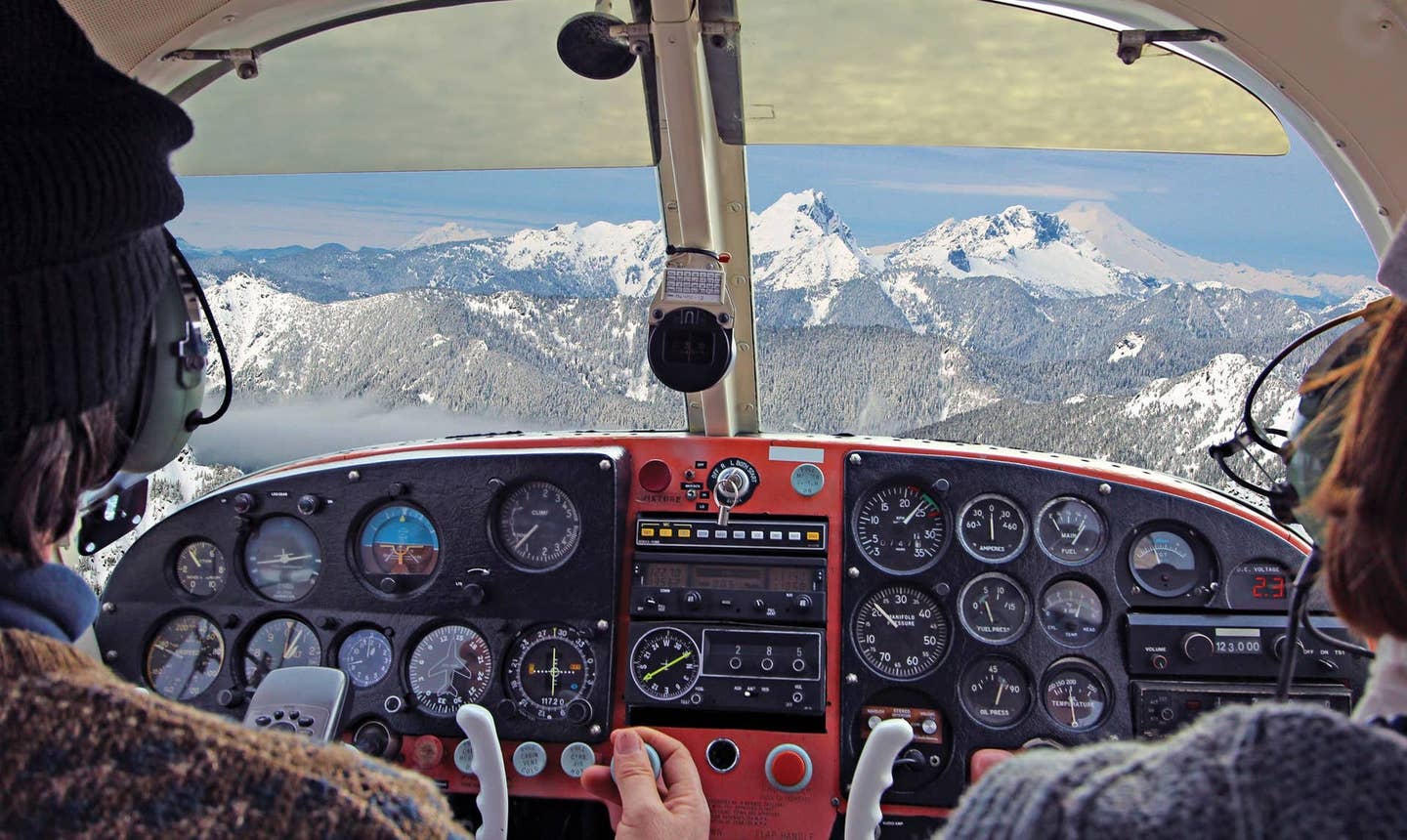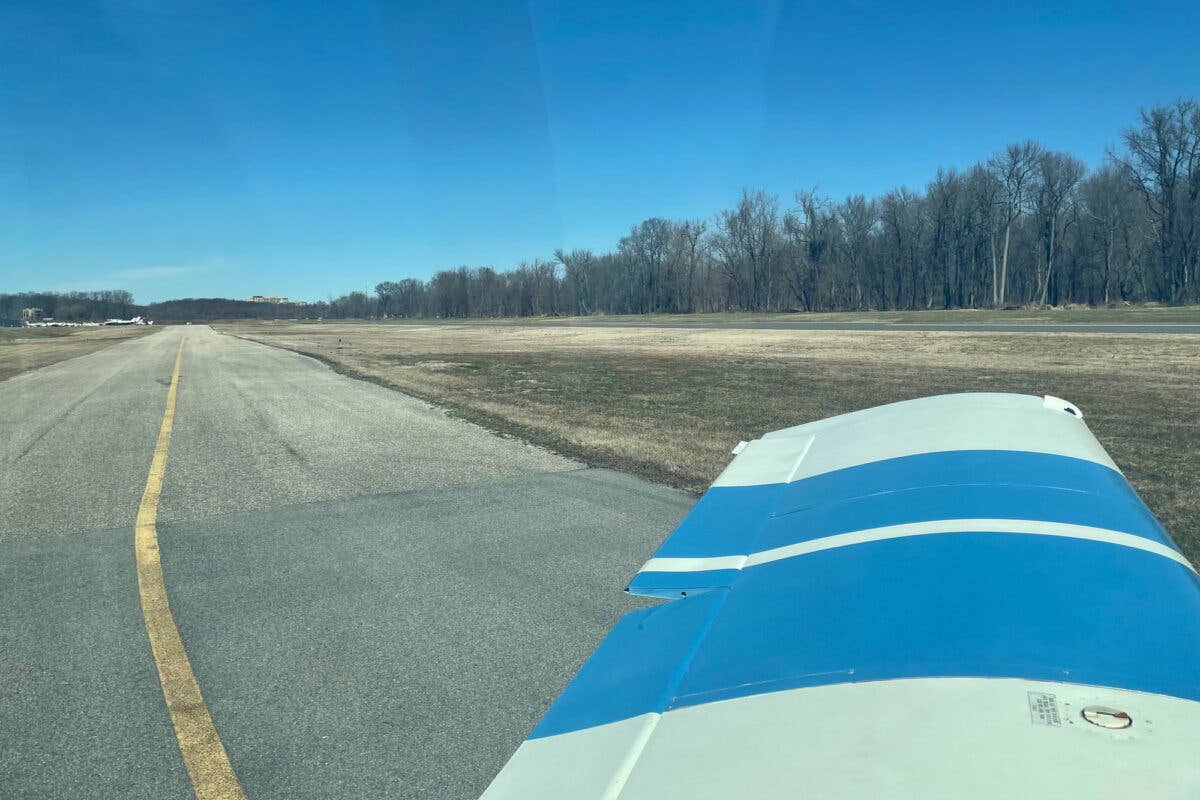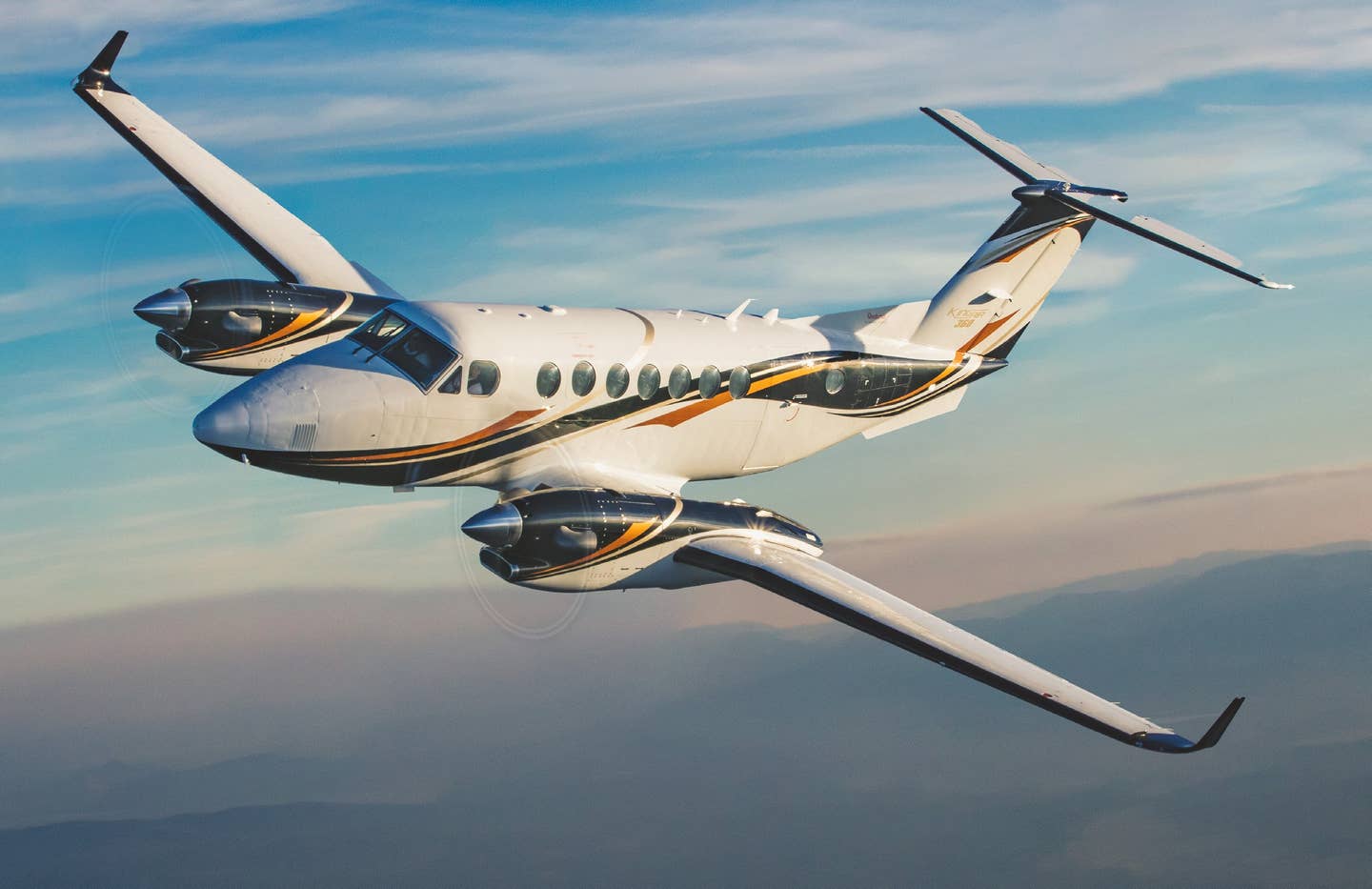
My 8-year-old nephew Dylan loved the 1949 Cessna 170A. Sam Weigel
It was the perfect Minnesota fall day, golden and breezy with a hint of the smell of wood smoke in the air, and just enough warmth to assist one in maintaining a certain healthy denial of the bitter months to come.
I drove out to Flying Cloud Airport (KFCM) with my 8-year-old nephew Dylan in the right seat, and as I pulled up to the green-and-white 1949 Cessna 170A, he was practically bouncing up and down with anticipation. Dawn and I had taken him flying before, having ferried him to and from his grandparents in the back seat of a rented 172, but this was different. Today, it was just the two of us, a few free hours on a nice Saturday with an old airplane, and nowhere in particular to go.
Dawn and I don’t have children of our own — cannot, so far as we know. It wasn’t our decision, but we’ve made the best of what the fates have handed us, becoming quintessential DINKs (dual income, no kids): traveling the world, seeking adventure, selling the house and sailing off on a boat. Come to think of it, Dawn quitting her job makes us single income, no kids, but that’s not a promising acronym for sailors! A lot of our parental instincts are invested in Piper, our overpampered flying/sailing hound of indeterminate lineage. The rest is directed toward our nieces and nephews, of whom Dylan is the oldest. All but the youngest have been in our airplanes a time or two, but none took to flying quite with Dylan’s level of enthusiasm. After that first ride in the 172, every conversation included the query of when I’d take him flying again. Now, with Dylan visiting for the weekend, was a perfect occasion.
I buckled Dylan into the 170’s cushy bucket seat and went through the preflight checklist with exaggerated care, explaining each item as I accomplished it. Dylan nodded patiently, and I finally cranked the old Continental six-banger to life. Taxi and run-up were surprisingly quick for one of the last best flying days of the year at Flying Cloud — I guess everyone else was home watching football. Full throttle, a little rudder waltz as the tail came up, and the old gal levitated into the air — pure magic, every time. I stole a sideways glance at Dylan and saw it on his face as the world dropped away — that burst of wonder and freedom and gratitude at the moment of liftoff. I felt it on my first flight at about his age, and it hooked me for life. More than 10,000 takeoffs later I still feel it — even when crammed into Seat 34E between Cleetus and Bubba in the back of a groaning Airbus. I think it’s something most of us pilots share, and a few nonpilots too. It used to be more widespread among the general population, when flying was still a rare privilege. You think about how many millions throughout human existence would have been enthralled to do what we do — and now it’s utterly, banally routine. Well, for some people anyway. The look on Dylan’s face was anything but routine. Good.
The Minnesota River Valley, resplendent in fall finery, unfolded below us. I winged over to follow the snaking waterway and leveled off at 1,500 feet, pointing out the places Dylan knew: the Valleyfair amusement park, the county stock-car dirt track, the historic river towns of Chaska and Carver, Dawn’s and my house. Seeing these places gave Dylan something to scale the scene by, and he marveled over how small everything was — or perhaps how big the world really is. We landed at the little grass strip at Belle Plaine, took off again over freshly harvested cornfields and headed north.
“OK, kiddo, want to fly? I’ll show you how. It’s easy.” Everyone I’ve taken flying gets the chance, and most take me up on it. Dylan nodded yes but his eyes betrayed his uncertainty — maybe even fear. This is normally a fearless kid, so what’s he afraid of? Not crashing; he gets how dual controls work. Fear of screwing up, I suppose, or “not getting it” and looking dumb in front of his uncle. I understand. At his age, and for a while after, failing to measure up in the eyes of others was my greatest terror in life, until I realized how much cool stuff I was missing out on because of it. Every amazing thing I’ve ever done or seen has been the result of me taking a leap into the unknown, somewhere beyond myself, at the risk of looking like a fool. Flying above all.
That’s what I love about teaching nonpilots the basics of flying. Nobody thinks they can do it, and yet most everyone catches on in about five minutes. Of course, every pilot knows it’s not the flying that’s hard, it’s the landing! And the navigation, weather, regulations and all the other minutia. But the movies never make that distinction. There’s really something quite lovely about watching a person realize they can easily do this thing they assumed required highly developed skills, and all the more when it’s somebody young, or timid, or from a troubled background. You think, this could be the spark, that first leap outside themselves. Usually, it’s just a pleasant, interesting experience they’ll think about from time to time, and that’s OK too.
Jargon is one of those walls that separate aviators from nonaviators, and I try to eliminate it when explaining flying to the latter group. You use this wheel to tip the wings and then the airplane will turn, see, and when you want it to tip less or stop tipping you turn it the other way. If you press a little on that pedal while you turn the wheel, it won’t feel like you’re tipping. And when you pull back, the plane goes up but it also slows, like coasting uphill on a bike. If you want to “pedal up the hill,” you push in this knob. Give the wheel a little nudge forward, and it’s like going down the hill. Ah, notice how the plane wants to level out? She’s stable; she likes to go straight. You just have to guide her a little! OK, you try!
Dylan grasped the wheel tentatively, tried a few shallow turns, then spied Lake Minnetonka in the distance to the north and banked that way. I explained the altimeter, VSI and directional gyro, thinking these would be of the most use, but then realized he was staring at the attitude indicator — a truly ancient instrument I suspected was handcrafted by Mr. Sperry himself. I had a good chuckle, remembering that Jerry Graham, my first flight instructor, covered up the AI to get me to stop fixating on it. “It keeps wanting to go down,” Dylan noted as the plane dipped 100 feet low for the third time. Very astute. It actually was a little mistrimmed. “Here, see this little wheel between the seats? Rotate it backward and it’s like you’re pulling back on the wheel a little bit.” Another memory of Jerry floods over me, this one from my second flight lesson, at age 13: “Remember, Sam, a professional pilot always keeps the plane trimmed!” Jerry knew I harbored hopes of flying for a living and used that as motivation all the time. He’d flown for a regional airline in Montana in the 1970s, making him the closest thing to a big-time airline pilot I knew at the time. His word was God’s word as far as I was concerned, and his advice in my ear persists to this day.
Dylan flew himself up to Lake Minnetonka, circled around a gaggle of sailboats engaged in a late-season regatta and finally surrendered the controls back to me to land at Flying Cloud. We put the 170 to bed, drove home and enjoyed the rest of the day running around the backyard. He didn’t say much about the flight at the time, but he immediately started asking when we could go flying again. We flew many times in subsequent years, in both the 170 and the Yellow Cub Club’s J-3, and then our Pacer, and he always got some time at the controls. He even talked about becoming a pilot for a while.
And then, horror of all horrors, Dylan became a teenager. Nowadays, his main focus is on cars, cash and girls — not necessarily in that order. Our long-distance phone calls and texts now center on those things, and music, and boats and fishing. But he still brings up our flights, and wonders if Dawn and I will get another airplane after we’re done sailing Windbird, and says he misses flying with us. I don’t know if his interest will survive adolescence. If he decides he wants to learn, well, I’ve kept my CFI ticket current all these years for a reason. But if our flights remain simply a fondly remembered memory of time spent with his uncle, they’ll still have been time well spent. For me, seeing a little of the joy that I get out of flying transferred to somebody that I love is the best reward possible.

Sign-up for newsletters & special offers!
Get the latest FLYING stories & special offers delivered directly to your inbox






